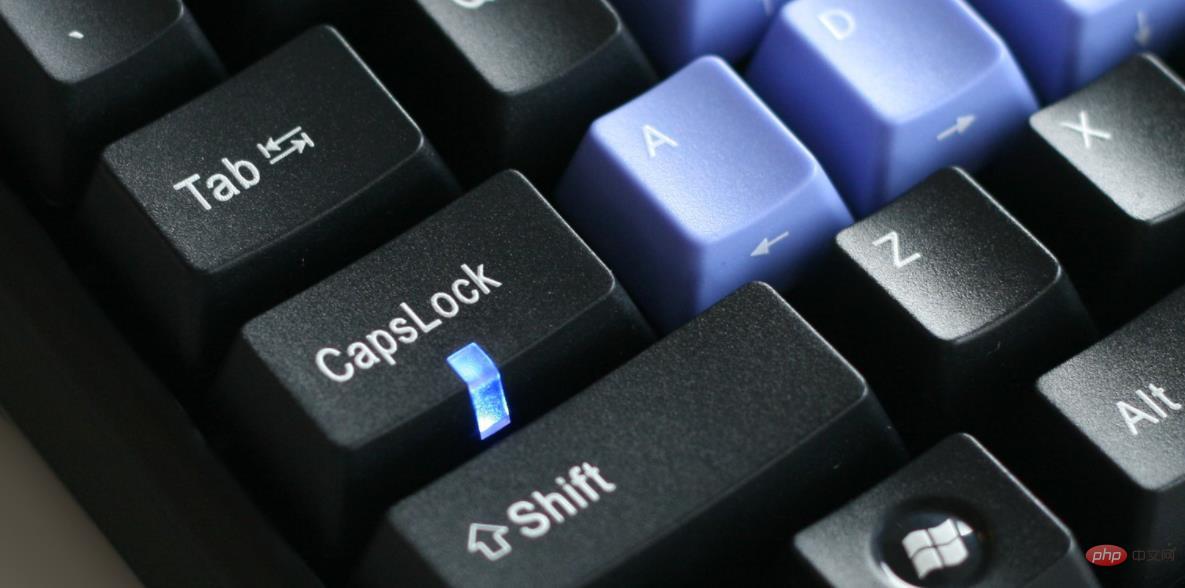
The uppercase keyboard is the "Caps Lock" key; Caps lock is the abbreviation of Capitals lock, which is the case lock key and is used to switch between upper and lower case; in Windows, when the Caps Lock key is pressed, the The caps indicator light will light up. Pressing the key again will turn off caps and the indicator light will go out.

#The operating environment of this tutorial: Windows 10 system, Dell G3 computer.
Which key is uppercase on the keyboard?
The key to switch between upper and lower case letters on the computer keyboard is Caps Lock.
Caps lock is the abbreviation of Capitals lock, which is a case lock key. It is a key on the keyboard for switching between upper and lower case. But it is mainly used to input several uppercase letters continuously. It can be used to switch between Chinese and English under macOS.

Usage Tips
Windows
When the Caps Lock key is pressed, the uppercase and lowercase indicators on the keyboard The light will light up (marked with an A in the upper right corner), and pressing the key again will turn Caps off and the light will go out.
If you want to enter capital letters without pressing the Caps Lock key, you can hold down shift and press the letter key at the same time.
When Caps Lock is turned on, you can enter lowercase letters and hold down shift at the same time.
Example: In the lowercase input state, enter uppercase B shift b
In the uppercase input state, enter lowercase b shift B
Mac
After pressing Caps Lock, the default Switch between Chinese and English, press and hold Caps Lock, the indicator light will turn on, and the ⇪ icon will appear on the right side of the input box. A short press turns Caps Lock off. The rest of the functionality is similar to Windows, with lowercase enabled by holding down shift in Caps Lock mode.
On the latest macOS, the Chinese name of Caps Lock is set to "Chinese/English Key".
For more related knowledge, please visit theFAQcolumn!
The above is the detailed content of Which key is uppercase on the keyboard?. For more information, please follow other related articles on the PHP Chinese website!
 Server monitoring software
Server monitoring software Mysql database migration method
Mysql database migration method Usage of UpdatePanel
Usage of UpdatePanel Why can't Amazon open
Why can't Amazon open How to solve the problem that the folder does not have security options
How to solve the problem that the folder does not have security options What are the methods to connect to vps server
What are the methods to connect to vps server How to solve the 0x0000006b blue screen
How to solve the 0x0000006b blue screen Today's Toutiao gold coin is equal to 1 yuan
Today's Toutiao gold coin is equal to 1 yuan